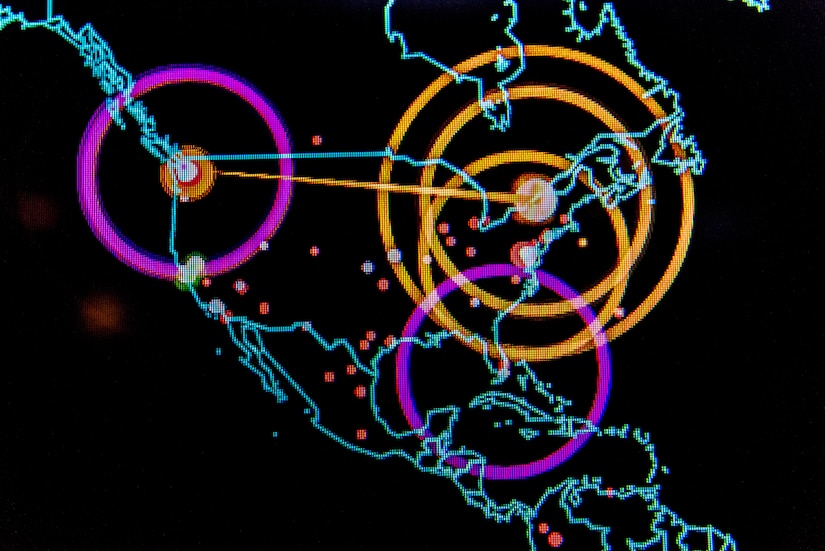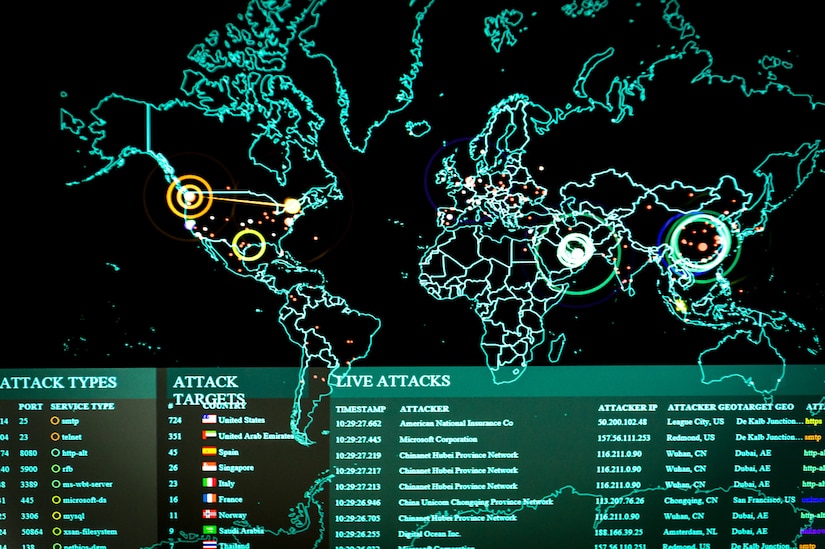Sept. 16, 2020 | , DOD News
The COVID-19 pandemic has been globally disruptive in nearly every facet of life. But other things may prove as disruptive in the future, said leaders of the military intelligence community.

One advancement that may possibly be as disruptive as COVID-19 is the revolution in information technology that's available to everybody — not just the U.S. and its allies, Navy Vice Adm. Robert Sharp, director of the National Geospatial-Intelligence Agency, said during an online forum today with the Armed Forces Communications and Electronics Association and the Intelligence and National Security Alliance.
"It's this revolution in remotely-sensed and geo-located data, which is available to everyone," he said. "It's available to us, but it's also available to our competitors. [Also] the revolution in smart machines and artificial intelligence — once again, [it's a] great opportunity for us, but it's not only our opportunity. That's the competition space."
Another area of concern is something Sharp called "GEOINT assurance." With the growth of open-source geospatial intelligence coming from multiple sources, it becomes less certain that the information can be trusted, he said.


"How do you have confidence in the ones and zeros that you're using for making decisions based off of," he asked.
Army Gen. Paul Nakasone, director of the National Security Agency and commander of U.S. Cyber Command, cited influence operations as the next possible great disruptor. Influence operations, he said, have a very low barrier to entry, enabling just about anybody to engage in them.
"We've seen it now in our democratic processes," Nakasone said. "I think we're going to see it in our diplomatic processes, we're going to see it in warfare, and we're going to see it in sowing civil distrust in different countries."

Influence operations, he said, are all enabled by the proliferation of inexpensive technology that allows anybody with an agenda to get online.
"The great technology that's enabling so much of what we're doing is also that dual-edged sword that malicious cyber actors and others are being able to use to create doubt, or to be able to question authority, or to be able to ... to spread messages that are far from true," he said. "I think influence operations, just in general, will be for us one of the things that we'll be dealing with not just every two or four years, but this is the competitive space that we're going to be in as intelligence agencies and as our nation.






No comments:
Post a Comment